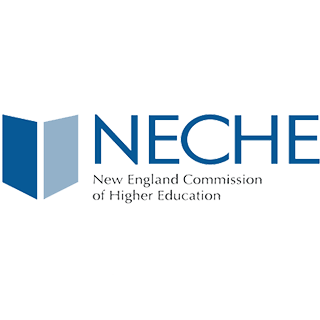For Jazzmen Shipp, Earning a Degree Changed Everything
Business | 2min Read

Use technology to drive effective business strategies with the online Bachelor of Science (BS) in Computer Information Systems program at Southern New Hampshire University. A CIS degree will help you gain the knowledge and skills you need to bridge the gap between IT and business.
If you've completed your associate degree in business or an AS in IT, this program is especially well-suited for you. With 15 free electives, you can finish your program faster – saving you time and money along the way.

Explore key tech concepts like systems thinking, scripting, database environments, application development, and object-oriented analysis and design. You'll think about these ideas in a business context, with courses that cover client systems and support, enterprise information systems and business intelligence and reporting. You'll also apply what you've learned through a culminating capstone experience.
Microeconomics, Macroeconomics and Applied Statistics for STEM are required as part of the general education program.
The BS in Computer Information Systems program bridges the gap between IT and business – with minimal math and programming requirements.
The program combines business core courses in accounting, leadership, finance and marketing with major courses focused on scripting, application development and enterprise information systems. With a balanced curriculum, you'll gain expertise at the intersection of IT and business while having the flexibility to tailor your degree with elective courses. You'll develop a strong foundation in systems analysis, project management and technical prowess, which helps you bridge IT and business units.
Visit the course catalog to view the full BS in Computer Information Systems curriculum.
All undergraduate students are required to take general education courses, which are part of SNHU's newly redesigned program, The Commons. The goal of The Commons' curriculum is to empower you with some of the most in-demand skills, so you can succeed not only in your academic career, but in your personal and professional life too.
Minimum Specifications:
Additional Information:
SNHU has provided additional information for programs that educationally prepare students for professional licensure or certification. Learn more about what that means for your program on our licensure and certification disclosure page.
Our no-commitment application can help you decide if SNHU is the right college for you and your career goals. Apply up until 2 days before the term starts!
Upcoming term starts: May 4, 2026 | June 29, 2026
Attending college online at SNHU can be a life-changing experience. In fact, 93.4% of online students would recommend SNHU according to a 2025 survey with 8,718 respondents.
Our instructors are at the heart of SNHU's mission of student success. With real-world business experience – and passionate dedication to our students and their learning – our faculty are with you every step of the way. Whether that means engaging with students on discussion boards, communicating concepts and ideas, or helping you explore your passion and your future, SNHU instructors strive to make your learning experience both valuable and memorable.

Dr. Ann Marie Moynihan has worked in several industries including high-tech, medical devices, industrial lighting, textiles, toys, real estate and property management. She has years of experience teaching on campus and online at SNHU and other institutions.
"With job growth on the rise, a bachelor’s degree in computer information systems will help graduates as they seek employment and meet workforce needs."
Position
Associate dean, STEM
Joined SNHU
2012
Education
Read more about Dr. Ann Marie Moynihan and other online faculty at SNHU.
You’ll take your courses within SNHU’s Brightspace platform. This is where you’ll find your:

At Southern New Hampshire University, you'll have access to a powerful network of more than 400,000 students, alumni and staff that can help support you long after graduation. Our instructors offer relevant, real-world expertise to help you understand and navigate the field. Plus, with our growing, nationwide alumni network, you'll have the potential to tap into a number of internship and career opportunities.
Recently, SNHU has been nationally recognized for leading the way toward more innovative, affordable and achievable education:
Founded in 1932, Southern New Hampshire University is a private, nonprofit institution with over 250,000 graduates across the country. SNHU is accredited by the regional accreditor New England Commission of Higher Education (NECHE), which advocates for institutional improvement and public assurance of quality.
No application fee. No test scores. And no college essay. Just a simple form with basic information. It’s another way SNHU helps you reach your goals sooner.
It's easy, fast and free.
Whether you're applying for an undergraduate or graduate degree, you’ll fill out a form to verify your previous education experience. As part of our admissions process, we'll help you request transcripts from your previous school(s) to see if you can transfer any credits into your SNHU program! (Also for free!)
After reviewing your official evaluation, you can decide if SNHU is right for you! If you choose to enroll, just pick your start date and get ready for classes to begin.
Talk to an admission counselor: 888.327.SNHU | enroll@snhu.edu
SNHU is accredited by the regional accreditor the New England Commission of Higher Education (NECHE). The university also carries specialized accreditations for some programs.
This program and its concentrations are accredited by the Accreditation Council for Business Schools and Programs (ACBSP). Student achievement data can be found on the ACBSP accreditation page.


As a nonprofit university, SNHU offers some of the lowest online tuition rates in the country. And when you work with our Financial Services team, we'll explore ways to help you save even more on your education – and customize a payment plan that works for you.
*before previously earned credits are applied
Tuition rates are subject to change and are reviewed annually.
**Note: Students receiving this rate are not eligible for additional discounts.
Additional costs: Course materials vary by course.
If 30 of your prior learning credits ($342/credit) are accepted toward your bachelor’s degree.
Your remaining tuition cost: $30,780
If 45 of your prior learning credits ($342/credit) are accepted toward your bachelor’s degree.
Your remaining tuition cost: $25,650
If 60 of your prior learning credits ($342/credit) are accepted toward your bachelor’s degree.
Your remaining tuition cost: $20,520
If 75 of your prior learning credits ($342/credit) are accepted toward your bachelor’s degree.
Your remaining tuition cost: $15,390
If 90 of your prior learning credits ($342/credit) are accepted toward your bachelor’s degree.
Your remaining tuition cost: $10,260
How we estimate your tuition cost:
We look at the cost per credit multiplied by the number of credits you need to earn for a bachelor's degree. Most bachelor's degrees require 120 credits. SNHU allows you to transfer in up to 90 credits, requiring a minimum of 30 credits to be taken at SNHU. This is only a tuition estimator, and doesn't account for other fees that may be associated with your program of choice.
Transfer up to 90 credits toward your bachelor's degree program at SNHU. If you’ve taken one course or many, we’ll evaluate them for you.
Fill out the FAFSA to see if you’re eligible for grants or work-study. (You could also be offered loans, though you’ll have to pay those back later.)
Earn credits in leadership, technology and more – while taking advantage of tuition discounts for active-duty service members and spouses.
Getting free money for college – from SNHU or an outside organization – could help you save hundreds or even thousands of dollars.
Bring in credits from popular options like CLEP, Sophia Learning, Google and other common credit for prior learning (CPL) experiences.
Learn how you can save money with tuition reimbursement from your employer.
Take advantage of an online tuition discount through your organization’s partnership with SNHU. Check with your employer to see if your organization partners with us and if you’re eligible for additional tuition savings and partner education benefits.
Lightning-fast access to information is no longer a nice-to-have – it's essential for any business to thrive. Therein lies the need for an educated workforce to step into the field. With an online CIS degree, you'll be prepared for a number of career options that bring business and technology together.
CIS is crucial to the success of businesses across industries. In banking and finance, for example, account management systems host massive databases of sensitive client information. In manufacturing, information systems can improve supply chains by connecting manufacturers with their customers, suppliers, service providers and more.
If it's a more business-focused career you seek, you may also be interested in studying management information systems (MIS) through our online bachelor's in business administration, which offers an MIS degree concentration.
Graduates of the computer information systems degree program may pursue a number of different careers, including but not limited to:
Study an organization’s current computer systems and procedures and design improvements to them.
Plan, coordinate and direct computer-related activities in an organization. Help determine the IT goals of an organization and implement computer systems to meet those goals.
Create or support computer applications, systems and networks.
Coordinate the budget, schedule and other details of a project. Lead and guide the work of technical staff and serve as a point of contact for clients.
Increase nationally in computer and information systems manager roles through 2032, projected by the BLS.1
Median annual pay nationally for computer and information systems manager roles as of May 2023, according to the BLS.1 Statistic not based on wage data for SNHU graduates.
Understanding the numbers
When reviewing job growth and salary information, it’s important to remember that actual numbers can vary due to many different factors—like years of experience in the role, industry of employment, geographic location, worker skill and economic conditions. Cited projections are based on Bureau of Labor Statistics data, not on SNHU graduate outcomes, and do not guarantee actual salary or job growth.

My degree in computer information systems allowed me to start the next chapter of my life. It prepared me to be knowledgable and successful in my career.
CIS stands for computer information systems.
The study of computer information systems refers to the practical use of technology in a business context. This is especially relevant in a world where data is king for organizations across industries.
From healthcare to finance, manufacturing to software, all kinds of fields rely heavily on information systems and data to drive better business decisions.
The length of time it may take you to earn your CIS degree depends on a few factors.
First, if you've attended other accredited institutions previously, you may have credits to transfer in. At Southern New Hampshire University, we'll accept up to 90 credits – that means 75% of your degree could be completed before you even begin your first class with us! (Not only does that save you years of time, but at $342 a credit, that saves you lots on tuition.)
Then, you'll want to determine the number of classes you'll be able to take at a time. SNHU's undergraduate terms are just 8 weeks long, with 6 terms per year. As a full-time student, you can take 2 classes each term, which would allow you to complete 12 courses a year.
However, many of our students also work full time, and attending SNHU as a part-time student can help make you more successful in your program. This means you'd only take 1 class each term, but it may also lengthen your journey to your degree.
Your degree is possible, and you can make it happen on your schedule.
While there may be crossover between CIS, computer science and IT, there are differences between these 3 disciplines.
Generally speaking, CIS is computer science through a business lens. While there is some overlap – such as scripting, systems design and data structures – a computer science degree puts a greater emphasis on computer algorithms and code. As a result, computer science is more math-intensive.
Many of the courses in our bachelor's in CIS program actually have more in common with an IT degree. Courses in areas like application development, object analysis and design, structured database environments and introduction to scripting are just as relevant to IT and CIS professionals alike.
Both CIS and IT professionals also act as intermediaries in their organizations. CIS professionals are liaisons for a company's top decision-makers. IT professionals, on the other hand, work across the organization to assist with tech-related issues.
That depends on your skill set and your interests. If computers and technology come naturally to you, then you probably have what it takes to earn your CIS degree.
Students entering the program may be required to take a statistics course, such as Applied Statistics for STEM. The program also requires a business core, which includes courses in accounting and finance.
That said, we also offer Pathways to Math Success assessments. Depending on your scores, you could earn up to 12 math credits toward your degree for less than $50 per assessment, saving you time and money.
It's important to note, too, that while the content of the coursework may be challenging, our community of advisors, instructors and peers are here to give you the support you need to complete your program.
As a CIS professional, you'll stand at the critical intersection of technology and business. Your expertise can help drive better, higher-impact strategic decisions. You could even play the part of trusted right-hand person for executive leadership – or better yet, become a high-level leader yourself.
According to the U.S. Bureau of Labor Statistics, the largest employers of computer and information systems managers in 2022 were1:
All of this is to say that a CIS degree can take you just about anywhere you want to go in terms of industry.
The amount you can make upon earning your CIS degree depends on many factors – including your job title, previous experience, industry and geographic location.
The U.S. Bureau of Labor Statistics reported that computer and information systems managers earned a median annual salary of $169,510 in 2023.1 By comparison, the median annual wage for all workers in that same time period was $48,060.1
That's for you to decide. The right computer information systems degree could position you for success in your field. In addition to well-above-average salary projections, the BLS also projects that 86,000 new jobs will be added for computer and information systems managers through 2032.1
But there are other factors to consider, too – like cost, reputation, curriculum and more. Here are just a few things that make the CIS degree at SNHU stand out:
1Bureau of Labor Statistics, U.S. Department of Labor, Occupational Outlook Handbook, on the internet, at:
Cited projections may not reflect local and/or short-term economic or job conditions and do not guarantee actual job growth.